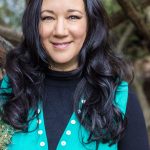Today is our first National Day for Truth and Reconciliation, created, in the words of the website set up to commemorate the occasion, to “honour the lost children and Survivors of residential schools, their families and communities. Public commemoration of the tragic and painful history and ongoing impacts of residential schools is a vital component of the reconciliation process.”
However, as Truth itself is in the actual title of this day, and as the The National Centre for Truth and Reconciliation has said there can be no reconciliation without acknowledgement of the truth of what actually happened in our history, we have to begin by acknowledging that those children were not lost. Without wishing to trigger anyone’s memories or suffering, they were not lost at all. They were at best neglected, at worst injured to the point of death, or driven to suicide.
There is no running from that truth today. Yet, even knowing that history, our Indigenous friends, colleagues, and relatives still extend their hands in friendship to those of us descended from settlers, in all kindness still willing, despite everything, to reconcile with us to build a better, more vibrant, and more sustainable future together — hand in hand.
That is the gift the relatives and families of those children still freely offer us. But that gift is only accessible to us if we are willing to look honestly at the truth of the past, a horror that has shocked the conscience of the entire world. It is only through acknowledging the truth of what happened that our hearts will open sufficiently to be able to enter into a true spirit of reconciliation.
We have so far to go as a country and as individuals, but we have at least begun. I am deeply grateful today for the extraordinary Indigenous friends and colleagues I have had the pleasure of meeting and learning so much from.
That journey began, as many such artistically-centred adventures do, at the Banff Centre and their transformative Cultural Leadership Program, which was co-Indigenous led and curated. It was there I first experienced what a decolonized space and process might begin to look and feel like; it was where I first learned about Right Relations; and began in small ways to learn more about Indigenous ways of being, learning, and knowing. It was also there I first learned about the idea of continually seeking the beauty that heals injury.
That journey has continued through the Canadian Music Centre, where we are embarked on a national process of Indigenization that began with the work of Jeremy Strachan doing research in our national library, and now encompasses a dynamic Accountability for Change Council working with our Executive and Board to make transformative change at every level of the CMC.
CMC BC would like to thank Dylan Robinson, a Stó:lō scholar and Canadian Chair of Indigenous Arts and Culture at Queens University, who shared with us over two sessions key insights and observations from his landmark book Hungry Listening with composers and staff and members of our BC Advisory Council; co-led a seminar with leading composers — Decolonial Imaginings; and is now a central member of the CMC’s national Council for Accountability and Change.
 And we would like to thank Marion Newman, an extraordinarily gifted Mezzo-Soprano, critically acclaimed Kwagiulth and Stó:lō First Nations mezzo-soprano. Marion held a series of conversations on CMC BC’s behalf with IBPOC creators and performers across the country; and joined our BC Advisory Council and has shared so much of her own lived experience with us; and is now galvanizing listeners as host of the CBC’s Saturday Afternoon at the Opera.
And we would like to thank Marion Newman, an extraordinarily gifted Mezzo-Soprano, critically acclaimed Kwagiulth and Stó:lō First Nations mezzo-soprano. Marion held a series of conversations on CMC BC’s behalf with IBPOC creators and performers across the country; and joined our BC Advisory Council and has shared so much of her own lived experience with us; and is now galvanizing listeners as host of the CBC’s Saturday Afternoon at the Opera.
The Canadian Music Centre nationally and here in BC is an infinitely better organization because of this work and learning. And these are just some of the initial steps we are taking. But they are hopefully laying the foundation for more conversations, more engagement, more conversation, more friendships, and more learning as we continue down this path and as we all attempt to come to terms with the true legacy of our colonial history. And as we collectively seek ways to begin moving forward in true partnership with our Indigenous teachers, leaders, and friends.
There are many resources available to help us begin at the The National Centre for Truth and Reconciliation (NCTR).



